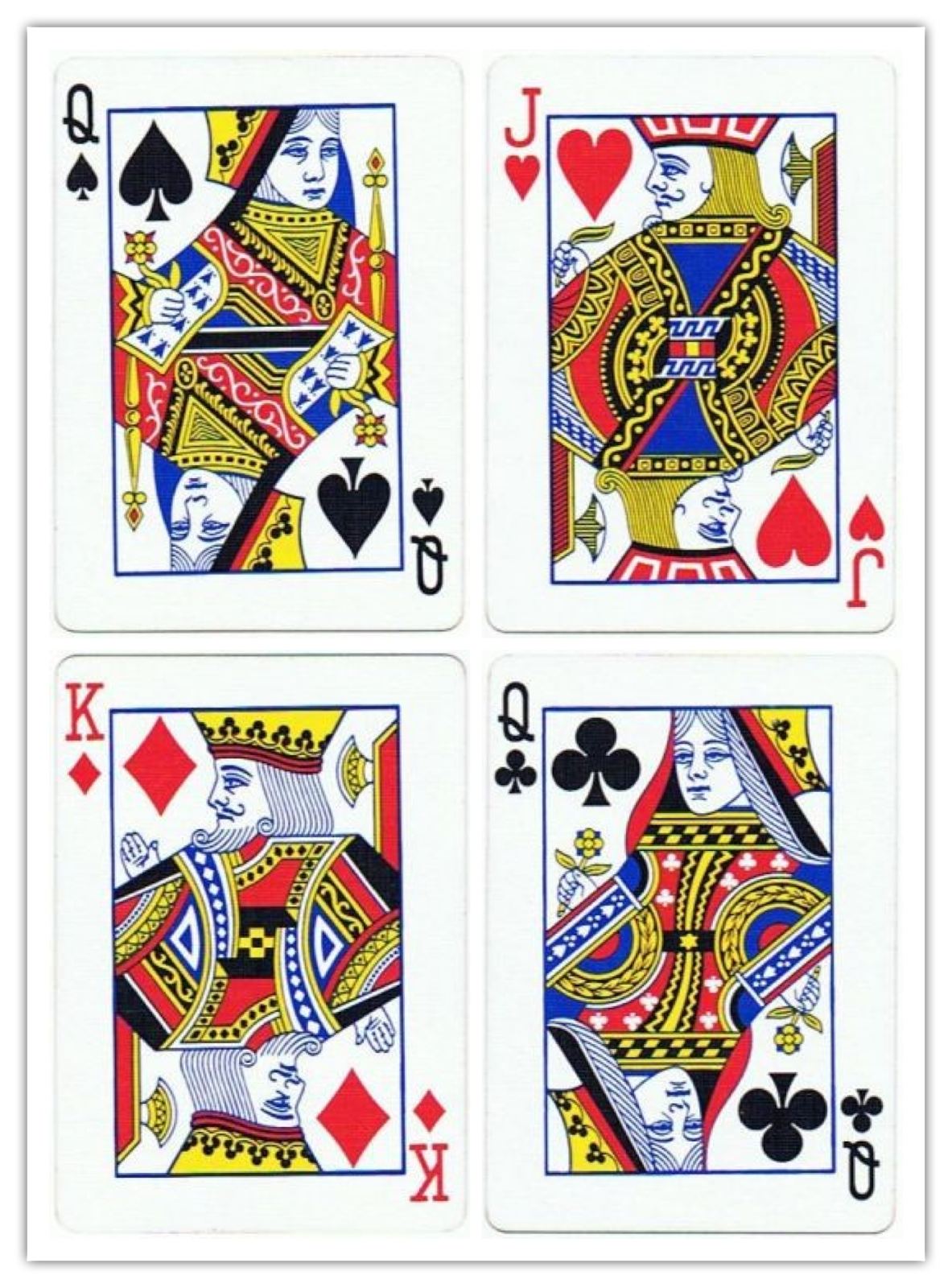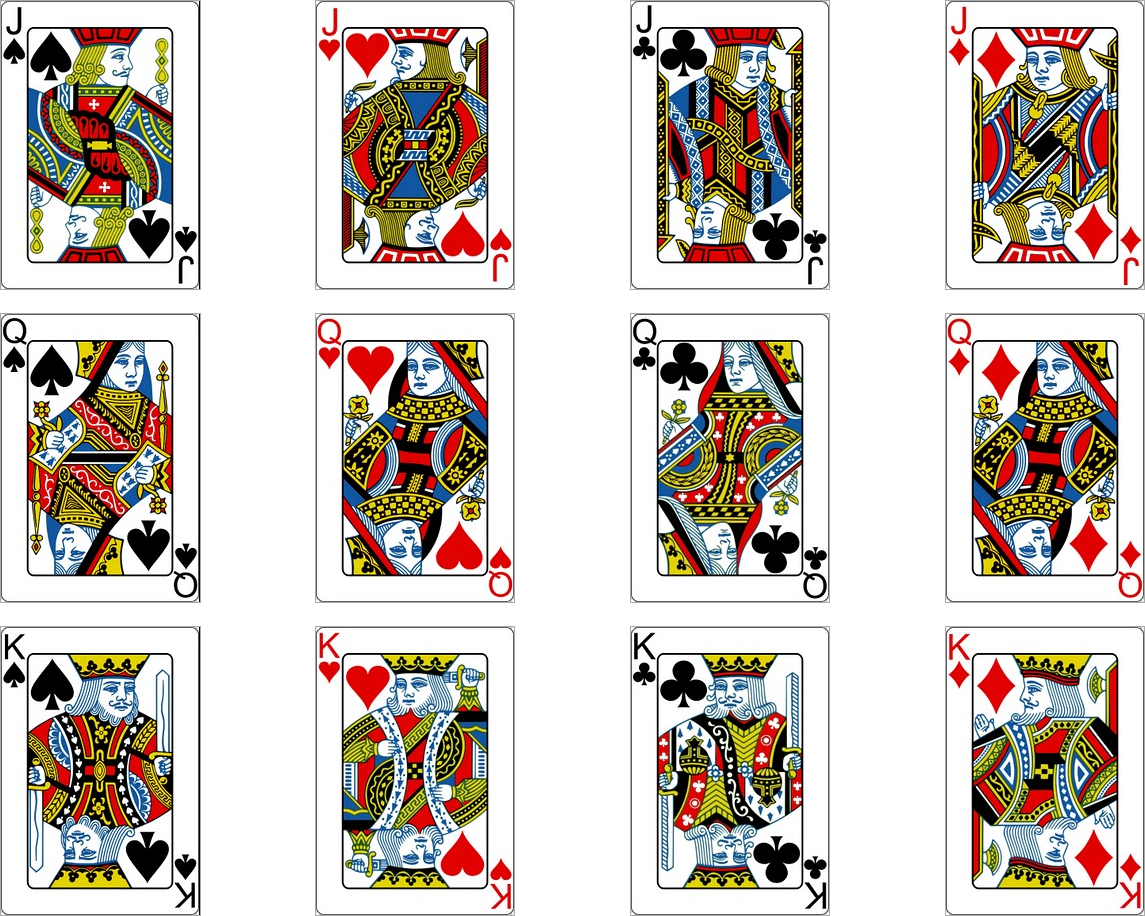When it comes to playing cards, many individuals often encounter the term "face cards," yet not everyone is fully aware of what this means. Face cards are an essential part of any standard deck of playing cards, playing a crucial role in various card games, from Poker to Blackjack. These cards, which include Kings, Queens, and Jacks, possess unique characteristics that set them apart from numbered cards. Understanding what face cards are can enhance your gaming experience and strategy, providing you with a deeper appreciation for the game.
In addition to their significance in card games, face cards also carry rich historical and cultural meanings. Each face card represents not just a figure, but often reflects a story or archetype that dates back centuries. The artwork and design of these cards have evolved, incorporating elements that represent various cultures and societies. As players engage with these cards, they are also participating in a tradition that spans generations, giving them a sense of connection to the past.
Moreover, the use of face cards transcends mere gameplay; they also serve as a fascinating subject for collectors and enthusiasts alike. From vintage decks to unique artistic renditions, face cards can be appreciated from both a gameplay and aesthetic perspective. This article will explore what face cards are in detail, discussing their significance, variations, and the role they play in different card games. Whether you are a seasoned player or a curious newcomer, this guide will provide valuable insights into the world of face cards.
What Are Face Cards?
Face cards are cards in a standard deck that feature a picture of a person, specifically the King, Queen, and Jack of each suit. Each card has its unique rank and point value, contributing to their importance in gameplay. Typically, the King has the highest value, followed by the Queen, and then the Jack. Here’s a quick overview:
- King: Highest-ranking face card.
- Queen: Second highest-ranking face card.
- Jack: Lowest-ranking face card.
Where Did Face Cards Originate?
The history of face cards dates back to ancient civilizations, with roots in the card games of China during the Tang dynasty (618-907 AD). The concept of face cards was later adopted in Europe, where they underwent significant transformations. The development of face cards was influenced by social and cultural factors, leading to the distinct designs we see today.
What Are the Different Types of Face Cards?
Face cards can be categorized based on various factors, including:
- Design: Different artistic styles and representations.
- Suits: Hearts, Diamonds, Clubs, and Spades.
- Regional Variations: Different countries may have unique designs.
How Are Face Cards Used in Popular Card Games?
Face cards play a crucial role in many popular card games. Here are a few examples:
- Poker: Face cards can form high-value hands.
- Blackjack: Face cards are worth ten points each.
- Bridge: Face cards have strategic importance in gameplay.
What Strategies Involve Face Cards?
Understanding the value and role of face cards can greatly enhance your strategy in card games. Some strategies include:
- Counting face cards to gauge the remaining deck.
- Knowing when to hold or fold based on the face cards in play.
- Using face cards to bluff or mislead opponents.
What Are the Psychological Aspects of Face Cards?
Face cards also have a psychological dimension in card games. Players often attach emotions and meanings to these cards, which can influence their decisions and strategies. For instance, a player may feel more confident playing a hand with multiple face cards, enhancing their gameplay experience.
Are Face Cards Important for Collectors?
Absolutely! Face cards are often the highlight of card collections. Collectors seek out unique and rare face card designs, appreciating their artistic value and historical significance. Here are some reasons why face cards are popular among collectors:
- Artistic Value: Many face cards feature intricate designs.
- Historical Significance: Vintage decks can represent specific eras.
- Rarity: Limited editions can be highly sought after.
How Can I Start Collecting Face Cards?
If you're interested in starting a collection of face cards, here are some tips:
- Research different card designs and their history.
- Visit card shops, flea markets, or online marketplaces.
- Join collector groups to share insights and find rare cards.
Conclusion: The Timeless Appeal of Face Cards
Face cards are more than just a part of a deck; they are rich in history, strategy, and artistry. Understanding what face cards are and their significance in card games can enhance both your gameplay and appreciation for this classic pastime. Whether you play for fun or collect them for their aesthetic value, face cards continue to hold a timeless appeal in the world of gaming.
Discovering The Magic: How Can I Watch Hocus Pocus?
Connecting Generations: The Impact Of "How Do You Do Fellow Kids?"
Unraveling The Mystique Of The Snow Leopard Roar


